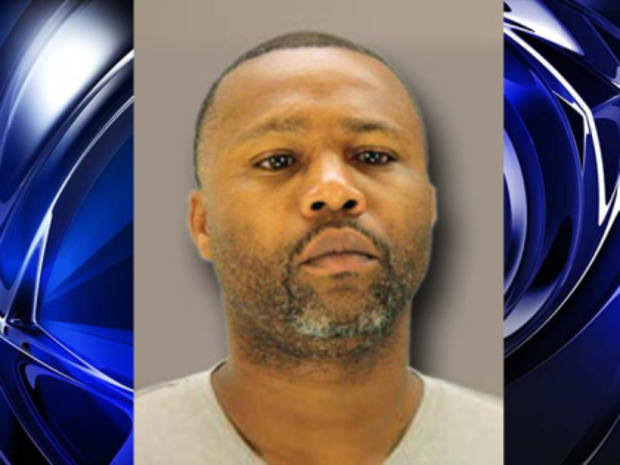Dallas Serial Rape Case: Suspect named in one of nine attacks was neighborhood crime watch block captain, report says
(CBS) - Police in Dallas are on the hunt for a newly-named suspect in one of a string of related South Dallas rapes, and CBS DFW reports the man was a neighborhood crime watch block captain.
DNA evidence linked Van Dralan Dixson, 38, to one of nine victims in the sexual assaults reported since June near a Dallas park, police said, reports the station.
Dixson, of Dallas, has been on the neighborhood watch group since January, Alendra Lyons, president of Dallas community group Mill City Community Association, confirmed to CBS DFW. Lyons said he had been acting in that capacity since the allegations surfaced.
The Dallas Morning News reports police asked to question Dixson in connection with the investigation, and he hasn't been seen since. He reportedly told a neighbor he had given a DNA sample he believed would clear his name.
Dixson has left his children in the care of family members, Dallas police said in a statement late Sunday. "Dallas Police detectives have no information that leads to the belief that suspect Dixson is on the run with his children," the statement said.
Police also said they discovered Dixson's car in a Garland parking lot. He was last seen by neighbors at his home a few days ago. Dixson is known as a "quiet guy that kind of kept to himself," who frequently walked the streets in the neighborhood, reports the station.
The investigation is continuing amidst a firestorm of controversy over why it took police until the seventh attack to inform the community.Police contend they couldn't immediately link the rapes that have terrified the city until Tuesday, when they announced the series of seven rapes which occurred between June 22 and Sept. 1 near Dallas' Fair Park were believed to be connected. Since the announcement, two more women have come forward saying they were victims.
Police departments often won't publicly announce that they are seeking a rapist unless they can tie a series of unsolved cases to a single suspect. But, says one retired officer, it can often prove challenging for departments to "connect the dots."
"When you have an instance of an unknown stranger attack, these are the things that make police departments very concerned, because they're the hardest ones to catch," said Joseph Giacalone, a retired NYPD Detective Sergeant and law enforcement trainer. "It's a complete mystery."
All of the victims were attacked in the early morning hours, and police say each said a masked suspect armed with a semi-automatic handgun demanded money and forced them to a secluded location, and sexually assaulted them.
Some of the victims reported that the suspect wore oval, gold-rimmed prescription glasses and drove away in a gray four-door sedan.
At a contentious public meeting Thursday night, residents demanded to know why they weren't informed sooner.
"I walk those streets. It could have been me....I should have been informed," one resident said.
Police Chief David Brown told the station that police were unable to connect the first two attacks, which happened in June. Six weeks later, there was a third attack, followed by a string of six more rapes in the last two weeks.
Brown told the station there wasn't enough information from the victims to tie the cases to a single suspect until Tuesday. Initially, he said, one of the first two victims didn't cooperate with police.
"These victims are often in shock and not ready to talk and we have to go at their pace. And their pace led us to talking with the public as of yesterday (Tuesday)," Brown told CBS 11's Sharrie Williams. "We don't push those victims beyond what they are ready to do."
That attitude mirrors what advocates for sexual assault survivors suggest, including extreme sensitivity when interviewing victims in an attempt to collect suspect descriptors.
"There's a much greater understanding than there was even a year ago about how victims process and retain information," said Scott Berkowitz, founder and president of the Rape, Abuse and Incest National Network (RAINN).
"It can be a slow and difficult process and the information they relate isn't going to come out in a linear fashion, or a nice, compact story - it's going to come out in bits and pieces."
In cases of stranger rape, police may not be able to collect information from the victim at all, Giacalone said, especially in cases where no DNA is left behind and victims are unable to see their attackers.
"They might have zero information," Giacalone said. "A lot of the time a victim won't even be able to tell you what race the person was. It could be a "blitz" style attack when a guy comes up from behind and they never saw what happened."
Without crucial descriptor information, it can be difficult to link attacks, Giacalone says. He often encourages victims to use "all five senses" -- what the suspect smelled liked or sounded like, for example -- to find any possible connections.
In cases where a sexual predator on the loose, the public should in general be notified "as soon as possible," said Berkowitz. The group encourages police to be as open as possible with the public about potential pattern attackers without impeding their investigation, he said.
However, he said police are in a "tough situation" in that they also need to ensure they're releasing accurate information and not promoting panic, Berkowitz said.
"It's hard to answer in the abstract," he said. "It's really a judgment call each time."

